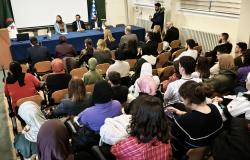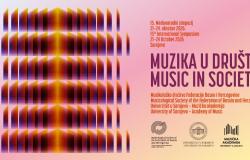UNSA Faculty of Economics: The effects of the pandemic on entrepreneurs in the world and BiH published in the latest global study

A global study on the effects of the COVID-19 pandemic, led by the prestigious Royal Kings College London, has documented the negative effects of the pandemic on entrepreneurs and businesses around the world, including Bosnia and Herzegovina. The study also identifies signs of optimism and resistance in those running SMEs. The survey covered over 5,000 entrepreneurs from 23 countries whose sample makes up 75% of total world production and over 50% of the world’s population.
Many entrepreneurs feel that their jobs have been jeopardized over the past year, primarily due to a lack of resources at their disposal compared to larger companies. Although entrepreneurs are known for their agility in a variety of challenging situations, major obstacles they face include examples ranging from late payments to inability to access government aid. New challenges are combined with health concerns and growing insecurity, limited social interactions, and weakening mental health.
Findings on how small and medium-sized businesses were affected by the pandemic include, but are not limited to:
• A worrying 61% of entrepreneurs in the global sample report the vulnerability of their companies due to a large decline in business volume, while layoffs were recorded in 28% of small and medium enterprises. Although several entrepreneurs in BiH expressed a serious threat to their business than the global average (about 70% of them), it is interesting to note that about 22% reported layoffs, which classifies BiH SMEs as lagging workers below the global average. .
• While over 40% of entrepreneurs increased their business activities working from home or other locations, Bosnia and Herzegovina recorded the least changes according to this criterion. According to the survey results, about 80% of BiH companies continued to operate at existing locations and approximately the same percentage do not offer their products online.
• Entrepreneurs are known to be very astute people, as was the case during the pandemic: almost 70% of entrepreneurs adjusted their business plans to the pandemic, which is also the case with Bosnian employers. Also, about 40% of companies have managed to find new business opportunities in a pandemic, and this primarily includes activities related to digitalization, health, changes from local to global focus, sustainability and new business models. Bosnia and Herzegovina is one of the countries with poorer results, where about one third of small and medium enterprises managed to realize new business ideas in the changed pandemic circumstances.
Key findings related to stress and entrepreneurial health suggest:
• During the pandemic crisis, there was an increase in stress among entrepreneurs, and life satisfaction was reduced by 12% compared to the situation before the pandemic. Such findings are not surprising given that about 40% of entrepreneurs report a high level of uncertainty and unpredictability for their businesses.
• Most entrepreneurs care most about their own and family health (58%), fewer care about insufficient health care (34%), although with significant variations in the world. Thus, Bosnia and Herzegovina belongs to the category of countries where business people are most afraid of the impossibility of obtaining adequate health care.
• While BiH is ranked among the less successful countries in terms of access to government support, BiH entrepreneurs have used support from family, friends and close people to a much greater extent than the global average. There also seems to be reciprocity in the sense that Bosnia and Herzegovina is at the top of the countries where entrepreneurs have reported volunteer support to others facing a pandemic (61% in BiH, and the global average is 51%).
• About 50% of respondents are frustrated by limited social interactions during a pandemic. Although there have been major changes in business and work from home, the fact that only 15% of entrepreneurs report loneliness during work is seen as positive.
Entrepreneurship professor at King’s College London, Ute Stephan, who led the study writing project, concludes: “While entrepreneurs have been optimistic and most have shown agility in a pandemic, it is quite clear that many are in survival mode. In our sample alone, the jobs of 3,162 entrepreneurs and their 41,578 employees are at direct risk. The short-term and long-term opportunities of entrepreneurs explored in the study suggest a long-term change in the economy with several trends: accelerated digitalization, a new focus on the local economy, demand for inclusive and sustainable business models and modern trends that enable individuals personal and business resistance. Smart governments will support entrepreneurs in these trends to help them to recover and anticipate new benefits in the post-pandemic economy.”
Based on science and the latest research on stress, individual well-being and resilience, researchers at the end of the study provide a summary of five simple steps entrepreneurs can take to productively cope with stress, support their mental health and strengthen crisis resistance.
Professor Stephan comments: “Entrepreneurs are the backbone of the global economy, but it is only recently that their mental health and resilience are being taken more seriously. Given the prevalence of the Covid-19 pandemic, understanding the experience of entrepreneurs in these difficult times as well as their forward vision are crucial in preserving small businesses. Entrepreneurial work is very demanding, and in addition, "being someone's boss" during such a crisis causes additional stress, which sometimes goes unnoticed in entrepreneurial work, although it is a time when there may be overheating. "
The global report with other findings can be downloaded HERE, and information on the global team of researchers who participated in the study is available HERE.
A member of the Project Team on behalf of Bosnia and Herzegovina was Prof. Dr. Adnan Efendić, Faculty of Economics, University of Sarajevo.








